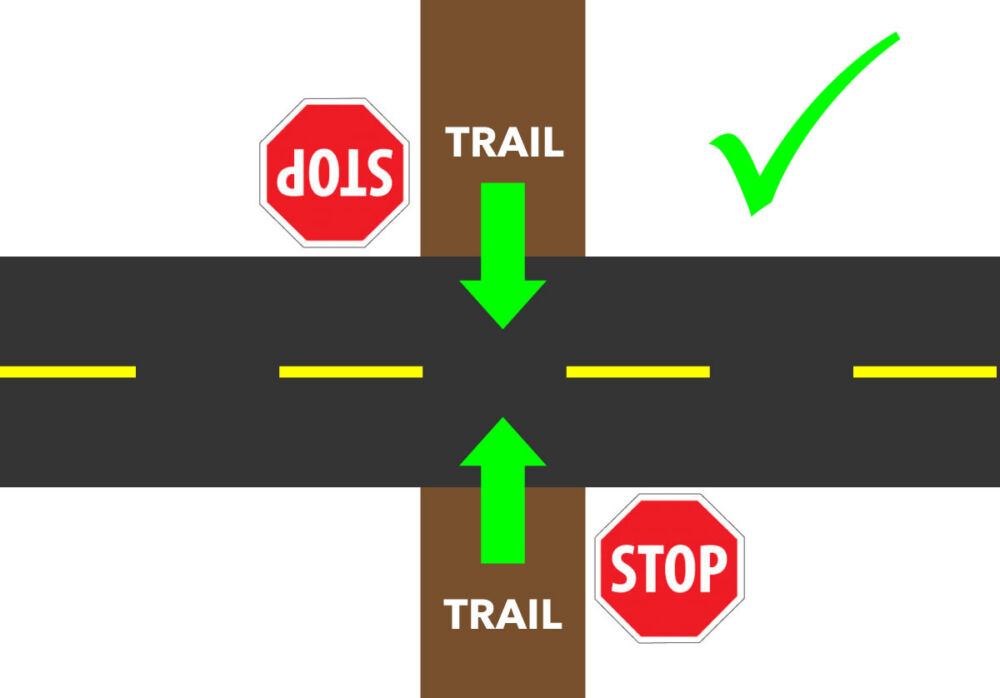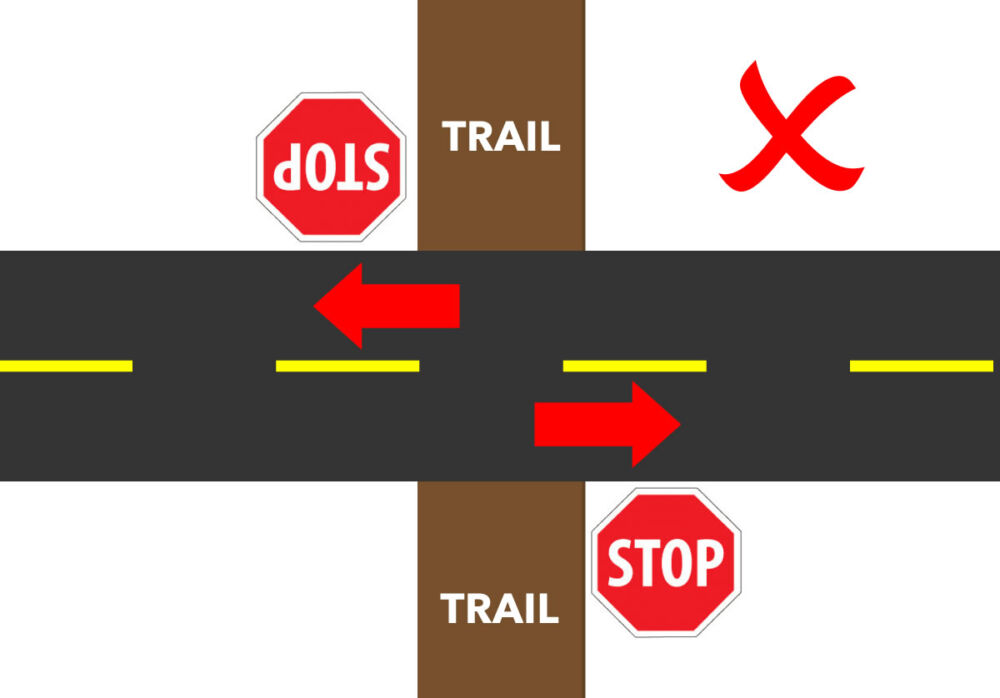You just purchased an ATV and you’ve heard you need to insure it to ride legally.
OK, what’s that mean?
We get a lot of insurance related questions, and not just from people new to ATVing. This article will attempt to explain the different types of insurance and what you must have vs the optional insurance products and what each covers.
DISCLAIMER – We’re not pretending to be experts, below we’ve provided simplified answers to complex questions. Our intent is to provide ballpark costs and a general idea of what each insurance type does and whether you need it or if it’s optional coverage.
We’ve heard far too many stories of people paying many hundreds of dollars for insurance they didn’t need and sometimes not even ending up with the correct coverage for riding on Forest Service Roads.
Terminology
ICBC and the Provincial Government use specific terminology when referring to ATVs (ORVs as we see below), we will identify these terms and use them for the rest of this article.
- ORV = Off-Road Vehicle – eligible ORV types include:
- Golf carts
- Snow vehicles
- Snowmobiles
- All-terrain vehicles (ATV)
- Trucksters
- Restricted use motorcycles (RUMs)
- Number plate = aka license plate like on your car/truck but it may also be a sticker that looks like a license plate
- Crown Land = land that is owned by the provincial government
- Resource Roads (RR) = roads built for industrial purposes to access natural resources. There are over 62,000kms of RR in BC, Forest Service Roads (FSR) is one type of RR.
- Public Roads/Highways = roads and highways (administered by the Ministry of Transportation and Infrastructure), municipal roads, rural side roads and roads on private or federally managed land are not considered resource roads.
Registration
In BC your ORV must be registered for use on crown land and must display a number plate. The one-time combined number plate and registration fee is $48. Just like automobiles, if you sell your ORV the next person must go pay the $48 registration and number plate fee to register the vehicle in their name.
Visit the ICBC website for more information, including all the documents you’ll need to bring to register your ORV.

Third Party Liability Insurance
This is the mandatory insurance you’ve heard you need if you’re going to be riding on Resource Roads. You must have a minimum of $200,000 third party liability insurance for your ORV and you must carry proof if it while riding (and you must have a valid driver’s license).
Is it mandatory for riding on Resource Roads?
Yes
What does it cover?
Third party liability insurance provides the policy holder with protection against claims resulting from injury or damage to other people or property.
How much does it cost?
$50-$75 per year for $200,000 third party liability.
As members of ATVBC we receive a discount on third party liability insurance through Oasis Insurance. Get a Free Online Quote on the Insure Toys website, prices will vary depending on your age, driving history and if you have taken an ORV safety course.
Insurance can be confusing, we recommend visiting your local insurance agent for assistance. Find your local Oasis Insurance brokerage on the Got Toys website.
ICBC Basic Autoplan
If you operate your ORV on or across public roads and highways, you’re required to obtain ICBC’s Basic Insurance. Basic Insurance is mandatory when operating on public roads and highways and ensures all motorists are protected by a basic level of coverage.
Many people are sold this insurance but currently in the North Okanagan/Shuswap there are very few places (if any?) where there are trails crossing public roads/highways that have stop signs on both sides of the road.
Is it mandatory for riding on Resource Roads?
No
What does it cover?
ORVs with Basic Insurance may cross a public road/highway when a trail (not a road) has stop signs on either side of the road/highway.

What it does not cover!
ORVs with Basic Insurance may not ride on or along a public road/highway.


How much does it cost?
$75-100 per year.
Basic Insurance is indicated by the dated decal applied to your number plate.

Optional Coverage: Accident Benefits, Physical Damage, Replacement Cost, etc.
These are all the coverages that provide you the rider and ORV owner with protection and coverage for yourself and your machine – these are completely optional overages. They may include coverage for medical care, loss of wages, injury or death, damage to your machine due to fire, theft, collision, etc.
Is it mandatory for riding on Resource Roads?
No
What does it cover?
Injury, medical costs, machine damage, loss of wages, etc.
How much does it cost?
Varies greatly, talk to your friendly local insurance broker.
Special cases and important notes
The examples above were all simplified to assist in identifying the correct product. Unfortunately there are often technicalities and special cases, read on to learn more.
- Crown Land & Resource Roads
Crown Land is all the land owned by the Province of British Columbia and includes Resource Roads. To legally ride on Resource Roads you must carry $200,000 third party liability insurance, BUT you don’t need third party liability insurance to ride on Crown Land.
For example: If you transport your ORV in a truck or on a trailer to an open piece of Crown Land, that is not a Resource Road, you may ride without third party liability. The ICBC website says “If you operate an ORV on forest service roads, you’ll need $200,000 in third party liability insurance. This may be obtained from ICBC or other insurers. On all other Crown land, liability insurance is voluntary but recommended.”
Do yourself a favour, don’t spend all that time trying to find “crown land”, just buy the third party liability insurance so you can ride on RR.
- Parking Lots, Neighbourhood Roads are Public Roads/Highways
Most parking lots and neighbourhood roads are part of the public road/highway network so require Basic Insurance, BUT ORVs are not allowed to operate along a public road/highway. Purchasing ICBC Basic Insurance does not make it legal to use your ORV to drive up and down your road to plow in the winter.
- Municipalities can allow ORVs on their roads
Municipalities can enact bylaws to allow ORVs on roads under their jurisdiction, this excludes provincial/federal highways. 11 communities on north Vancouver Island have done this to form the North Island 1000, Sicamous has been working on an ORV bylaw and a number of other communities are working with ATVBC on similar bylaws. See ATVBC attends UBCM in support of Resolution B121 and the Provincial Response to Resolution B121.
- Operating Permits can be obtained for ORV use on roads/highways
RCMP or municipal police may issue an operating permit to allow ORV use on public roads/highways for a number of reasons. See the MV1815 Operating Permit Information Sheet for details.
